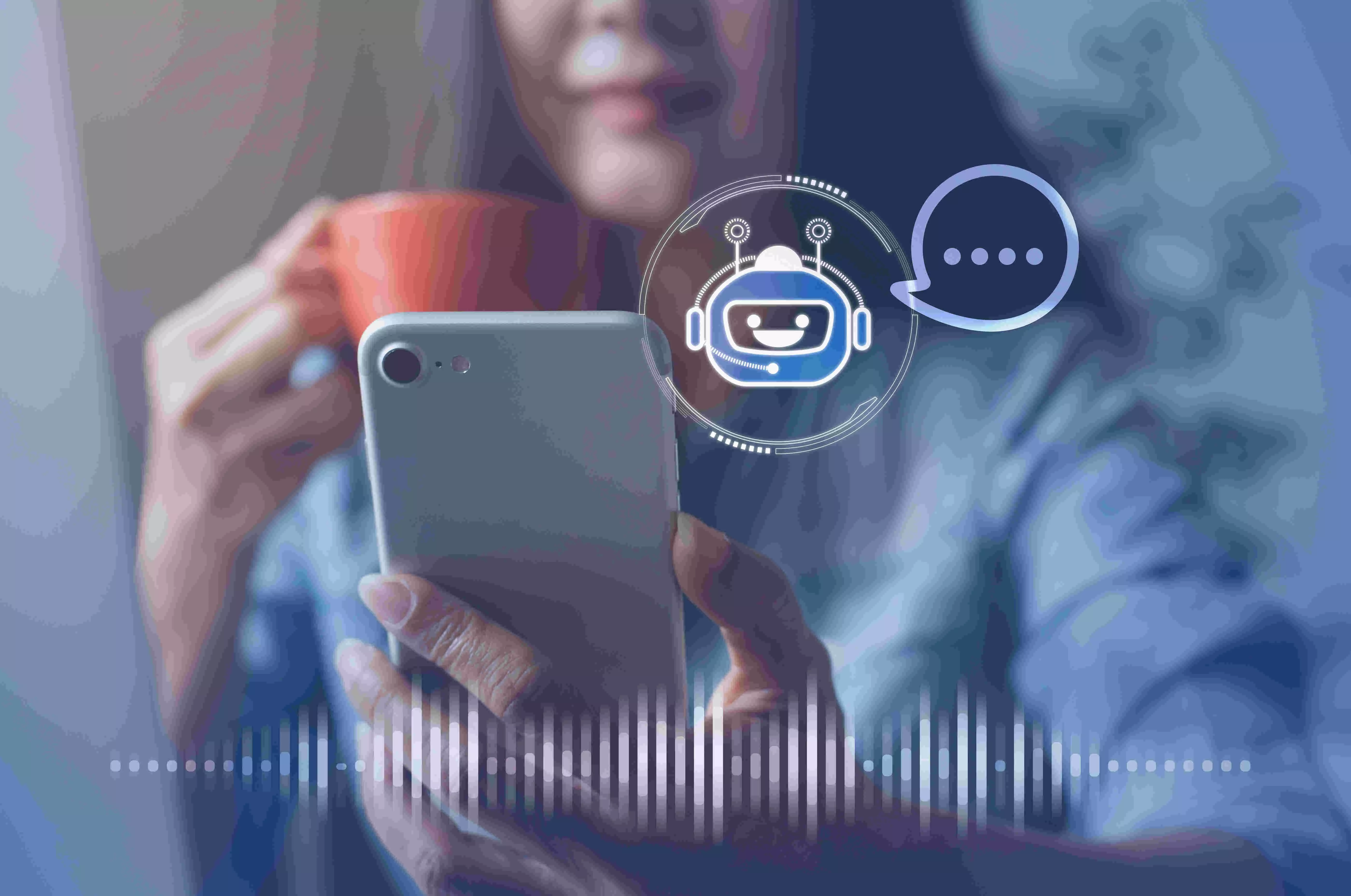Healing through a bot?
Like other fields involving human agency, psychotherapy, too, is not left untouched by AI, but chatbot therapists should only be used in supplementary roles rather than as alternatives to in-person therapy

It’s 2025, you open your phone, and someone asks you, “How are you feeling?”. You take a moment and reply, citing how you are enraged with your partner and wish to break up with them. Promptly, a reply comes through, encouraging you to take a few moments to look deeper into this reaction. It gives you a few techniques to slow down your response and provides almost human-like empathy. This is not another human. It is your very own AI chatbot therapist. Always with you, at your beck and call, and personalised like no other.
Therapist chatbots can close the mental health treatment gap. In the ever-growing world of ChatGPT and AI, the world of therapy is slowly seeing a shift towards AI chatbot therapists. The market is flooded with apps that provide such support. Let us explore the world of the AI chatbot therapists and know if this is the right solution for you.
Therapy
Therapy or psychotherapy is a process of working with a therapist to resolve problematic behaviours, beliefs, relationship issues, and/or somatic responses. There are many scientifically validated therapies, for example, CBT (cognitive behavioural therapy), DBT (dialectical and behavioural therapy), trauma-informed therapy etc. and these are conventionally conducted by a human therapist whom you may meet in person or online.
What are AI-powered therapist Chatbots?
Therapist chatbots, also known as therapy chatbots, are conversational tools that are powered by artificial intelligence. They are usually created to assist psychologists, psychotherapists, and other healthcare providers in enhancing the well-being of patients who are dealing with psychiatric disorders, trauma, or stress.
Depending on their training, chatbots can respond to speech or text inputs, and can be deployed on platforms such as:
* Messaging apps ;
* Mobile applications of organisations;
* Websites of the organisations.
Can AI chatbot therapists replace human therapists?
Right now, these bots are strictly for add-on use and not as a replacement for human therapists. The ethical and legal guidelines are that the therapy with a therapist chatbot should supplement an in-person session as the primary source of therapy.
Qualities of a good therapy chatbot
* Provide confidentiality;
* Allow room for expression;
* Understand the cultural and language context;
Be empathetic;
* Connect with the right peer support groups if needed;
* Expertise in the disorder;
* Trust and security.
The role of AI therapist chatbots can be found in the following areas:
Overall use:
* Symptom evaluation;
* e-triage: Determining the severe clinical patients and estimating the likelihood of hospitalisation;
* Screening tools;
* Tracking the progress of the case.
Psychotherapy:
* Autism: It may be hard for folks with ASD to begin to have human interaction, hence the bots can be a prelude to working with a human therapist.
* Marriage therapy: To ensure the neutrality of the therapist.
* Social anxiety;
* CBT skills at home;
* Add-on to practising the techniques learnt in therapy.
Other scenarios:
* Loneliness: Simply to reduce the feeling of loneliness and sadness that accompanies it.
* Journaling: Great for journaling and maintaining a track of your thought records that can help you in the long run.
* Life-coaching services.
The biggest advantages are:
* Cost-effective: Easy, cheap, and affordable compared to therapy with human therapists;
* Anonymity: The idea of not being known can bring a sense of ease to share your darkest thoughts;
* Accessibility: No waiting period. Anytime anywhere at your fingertips;
* Consistency: Regular check-ins can be performed by the chatbot therapist to create consistency and build new habits. You can make the chatbot responsible to monitor your behaviour, like habit forming, reduction in addiction etc.
Pitfalls of AI chatbot therapist:
* False diagnosis and faulty diagnosis: AI can lead to incorrect diagnosis at times;
* Chatbot failure;
* Empathy: AI is forever evolving to learn better empathy but has a long way to go.
* Crisis intervention:
* Actively suicidal thoughts need immediate human intervention and talking to a bot can feel artificial in the darkest hours;
* Psychotic spectrum;
* Thoughts of harming others: When active thoughts of harming others exist, for example, a mother battling postpartum issues towards her baby, immediate intervention and actions need to be taken;
* Sexual content or sexual OCD: The chatbot may not understand sexual OCD content and flag it as inappropriate due to the keywords. Those with paraphilias and sexual disorders may face similar issues.
* Misuse:
* Security and sensitive information: In case of a breach of records, sensitive information can be exposed;
* Trolling the chatbot: Many individuals toy around with the bot and try to feed it false information to learn from.
* Language and culture appropriation can be harder for an AI to understand;
* Unhealthy boundaries: Overdependence due to constant availability;
* Limited range of responses: AI usually provides one-size-fits-all approach solutions while problems with us humans can be unique and dynamic;
* Accountability & legality: In case of a client facing worsening issues or feeling that therapy is not working, who will be accountable?
A major lacuna
Therapy is more than just conversation. It is about understanding the subtle undertones of voice, examining body language, and observing pauses to see where parts of the conscious and subconscious self show up in therapy. These are currently hard for chatbots to do. These chatbot therapists can begin to supplement but not replace the human touch yet.
Popular apps that have AI chatbot therapists
(Caution: These are not a replacement for mainstream therapy and should not be used in crisis management)
Wysa, Limbic, Woebot, Replika
Food for thought: Would you prefer a human therapist or an AI chatbot?
Send your questions to [email protected]



